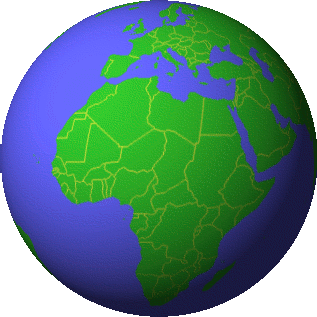“Then again Jesus said to them, I am the light of the world; he who comes with me will not be walking in the dark but will have the light of life.”
(John 8:12)
Continuing the turn, the enlightenment (philosophy of lights) was a widespread intellectual movement, mainly in England and France (XVIII century), in defense of freedoms: Free expression, education, division of powers, legal equality and representative government. As a result of the transformations promoted by the parliament in England, the enlightenment movement emerged after the monarchic absolutism, being the cradle of the development of the Liberal State: Three distinct powers, Executive, Legislative and Judiciary. The enlightenment ideal was to build a society geared to the needs of the people, "free from shackles", so that the Liberal State, as conceived in the XVIII century, influences the constitutional texts to this day: Three independent powers and harmonics.
The enlightenment movement refers to reason, the ability of the human mind to know, understand and judge, reaching conclusions based on the premises. Reason operates in the fields of abstraction, coherence, contradiction and problem solving, among others. As an instrument capable of promoting the critique of issues involving society, the enlightenment had rationalist thought as a basic principle, everything was submitted to the authority of reason. Among the diverse personalities of enlightenment formation, the French jurist Charles de Secondat Montesquieu (1689-1755) stands out, author of the work “The Spirit of Laws”: “the law is natural to beings, their own”. Montesquieu defended the separation between the powers of the State (Legislative, Executive and Judiciary), previously concentrated in the person of the king. According to the author, legislating and judging is equal to authoritarianism, and with the separation between powers, abuses by the rulers would be avoided: Individual freedoms would be protected.
"And everything would be lost if the same person – or the same State institution – exercised the three powers: that of making laws, that of ordering their execution and that of judging conflicts between citizens." (Adapted from “L’esprit de lois”, 1748).
If it weren't for the influence of religions and the fallen nature of human beings, it is believed that the formula of the Liberal State, according to Montesquieu's conception, until today, has been the most balanced solution to the recurrent problems of societies. However, the idolatry of the people and the perversity and oppression of the rulers have been, through the centuries, the obstacles to political, economic and social advances. There are things that go beyond the limits of reason, the limits of science, but there will always be space, beyond philosophies and religions, for the development of the Christian faith. The English playwright William Shakespeare would say: “There are more things between heaven and earth than our vain philosophy supposes”, (excerpt from the play Hamlet - Tragedy of Doubt).
When speaking of spaces beyond philosophies and religions, it refers to the expansion of spaces for the development of the Christian faith, Jesus Christ, the light of the world. (John 8:12). Thus, it is back to wisdom, trust and consistency of attitudes that build.
“Then again Jesus said to them, I am the light of the world; he who comes with me will not be walking in the dark but will have the light of life.”
(John 8:12)
It appears that Jesus' followers multiply throughout the world in geometric progression. It is cautioned that they are not equal to “Twitter” followers, but followers in alliance with God, transformed in understanding and mind, according to the reflection of the image of Christ. Inner transformation (from the inside out), through the action of the Holy Spirit. (Jeremiah 31.33)
“But this is the agreement which I will make with the people of Israel after those days, says the Lord; I will put my law in their inner parts, writing it in their hearts; and I will be their God, and they will be my people.”
(Jeremiah 31:33)
A reflection on what is meant by a follower of Jesus follows.
“Appropriating the Kingdom of God is a personal decision to walk reflecting the image of Jesus, overcoming the natural inclination to sin. The necessary ingredients for the Word of God to germinate, grow and bear fruit are: Fertile soil of the heart and genuine repentance. The fruit will be the result of character molded after the love of God, the grace of the Lord Jesus Christ, and the fellowship of the Holy Spirit.”
(Extracted from the book, Christology at your Reach, 2010).
Surely you're not Shakespeare, but you believe. The question that won't be silent: Is there any wonder which the Lord is not able to do? (Genesis 18.14)
No need to answer, but "Make me Laugh".
We are the righteousness of God, in Christ
Manoel Lúcio da Silva Neto is master in Production Engineering (Media and Knowledge), author of the book, Christology at your Reach, 2010.












